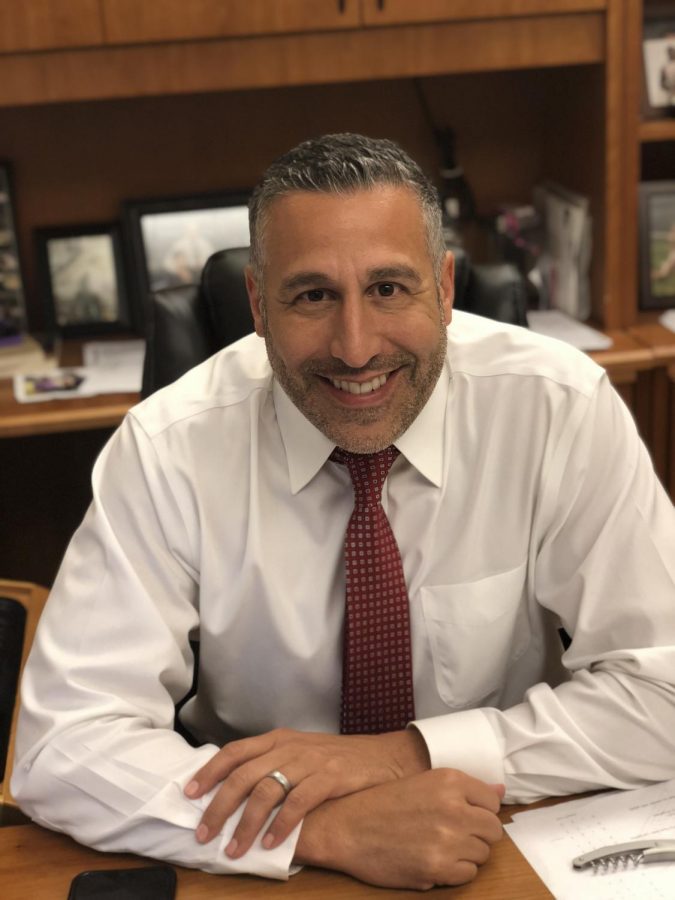7 Questions with Coach Blundo!! Holiday Edition (New Feature)
December 15, 2018
I am starting a new feature called Seven Questions asking our coaches about their “Philosophy of Life” in regards to their respective sport. I hope you enjoy my first interview view with Coach Blundo-Daniel Minenok
Q: How do you teach life lessons through basketball?
Coach: We try to do that every day. We think that coaching basketball is just a microcosm of life, and the stuff that we’re teaching our kids about doing the little things right, being detail oriented, caring about other people, how to be a good team player and a great teammate, how to lead appropriately, how to talk to one another, your work ethic, those things all tie into what you’re going to be doing the rest of your life. If you’re good at all those things as an athlete, you’re probably going to be pretty good at that stuff moving forward as a father, or an employer.
Q: What are the most important character building qualities to teach your players?
Coach: I think it’s probably putting other people before yourself, how to care about your teammates, how to give more of yourself, and work ethic. I don’t think you can be very successful if you don’t know how to work hard and deal with the discomfort that comes with hard work.
Q: If the players on your team were your own children, what would you want them to get out of this experience?
Coach: I treat my players like they are my own children. I want them to learn how to be different. It’s the same things I talk to my kids about. I don’t want you to look at the ways of the world and say “I want to be like that” because I’m not particularly fond of, or proud of the direction our world is going and the way that young people are doing things. In my opinion, to be doing things right you have to be different.
Q: How can you motivate your players?
Coach: I think it’s the understanding that it’s a lot of work, that it’s worthwhile, and that the things that we’re teaching them are going to carry on and help them to be really happy over the next sixty to seventy years of their life. When you look at that big body of work and you look at how long that is, and you understand that there’s a road of unhappiness and there’s a road of happiness and there’s one way to get to that road of happiness, that, in and of itself, should be enough motivation.
Q: How can you improve teamwork and the attitudes of each player?
Coach: I think that’s cultural, and I think that’s something at this point in time precedes itself. The players know and understand that the cornerstone of the program is “together,” and to do things and work hard for one another, and for the name on the front of your shirt, not the name on the back. We don’t put names on the back for that reason.
Q: Who are some of your mentors that you looked up to?
Coach: My father influenced me more than anyone. Coaches that I’ve coached with over the years, you take a little bit from all of them, good and bad, and you create your own philosophy. And I have my closest friends, I’ve learned from them. You may not call them mentors, but their friendship certainly matters in terms of how we try to shape our philosophies.
Q: What is your best advice for young people today?
Coach: You can’t get this back. You can’t get these days back. These are some of the most special days of your life. Don’t coast through life, wake up every day and attack it, live it, and enjoy it.


